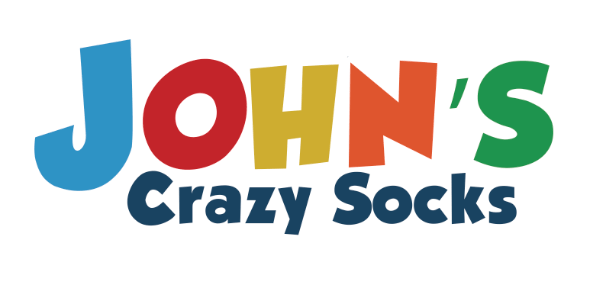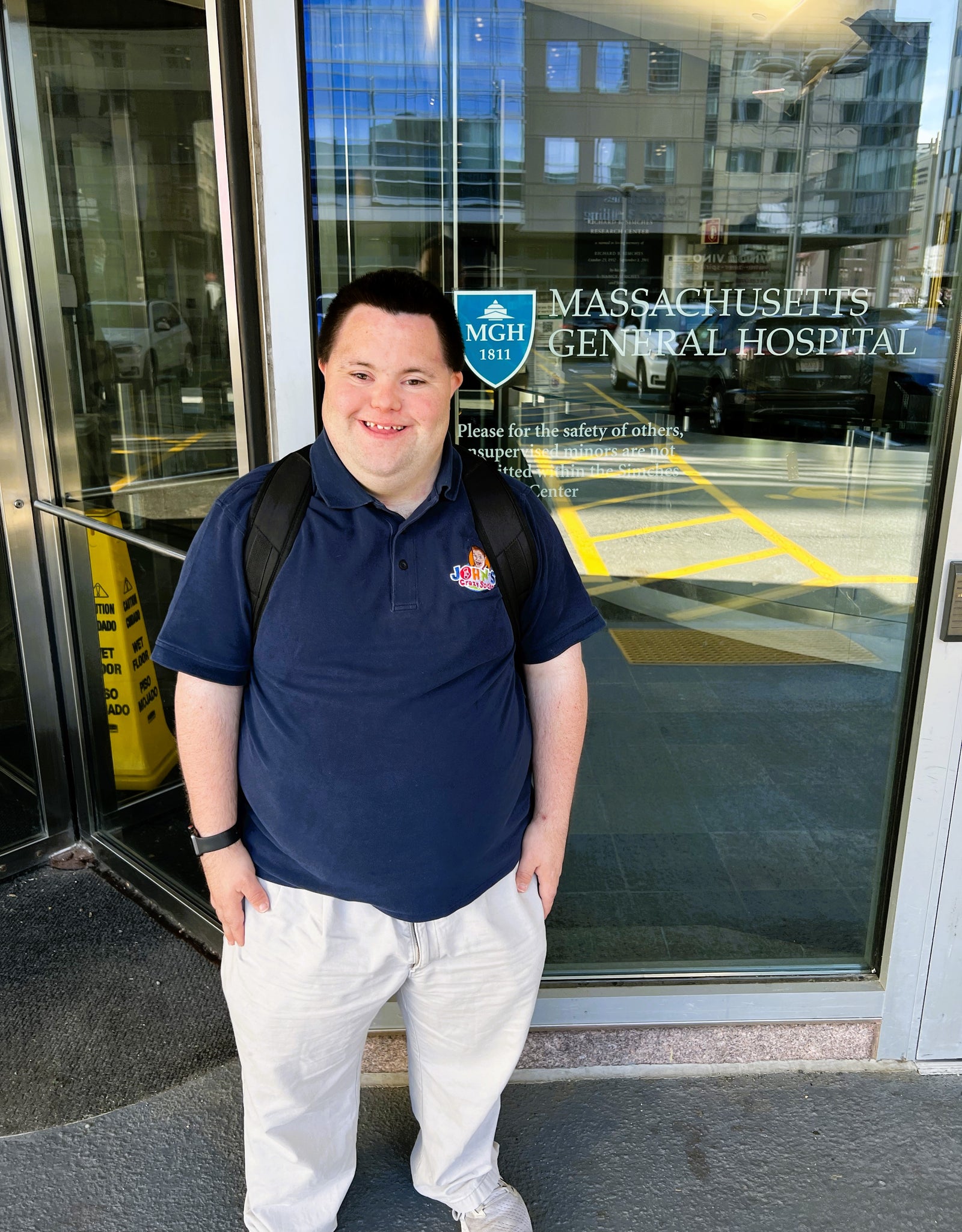Last Friday, John Cronin, co-founder of John’s Crazy Socks, traveled to Massachusetts General Hospital in Boston to enroll in a medical research study examining the connection between people with Down syndrome and Alzheimer’s disease. John enrolled in this study to do his part for people with Down syndrome and to help change what is a dire outlook for himself and people with Down syndrome.

Nearly Every Adult with Down Syndrome will Develop Alzheimer’s Disease
A person with Down syndrome, a person like John, has a 95 percent chance of developing Alzheimer’s disease by age 65. Most people with Down syndrome will begin showing signs of the disease as early as their 40’s. In fact, Alzheimer's disease is the leading cause of death of people with Down syndrome.
The Washington Post reported: “Of the 210,000 people with Down syndrome, about a third have Alzheimer’s, or are at high risk because of their age, with the average age of diagnosis about 54. The illness worsens relatively quickly, with individuals dying within four years.”
Take a moment to consider those numbers. I am John’s father, and our family has already seen what Alzheimer’s can do to another family member, how devasting to the person and for the family. It can be overwhelming to sit here and think that John has within him this awful disease waiting to wreck him from the inside out. When we talk about Alzheimer’s disease, it is deeply personal. John and others with Down syndrome are not statistics, they are our sons and daughters, brothers and sisters, friends, relatives, and co-workers.
We and John cannot sit idly by. We have to take action to change the path that leads to Alzheimer’s.

Enrolling in the LIFE-DSR Medical Research Study
John enrolled in the Longitudinal Investigation for the Enhancement of Down Syndrome Research (LIFE-DSR), a multi-year, coordinated research study by medical and academic professionals to track and analyze the medical and physical data of 270 adults with Down syndrome. We were introduced to the study by our friends and charity partner, LuMind-IDSC Down Syndrome Foundation. LuMind IDSC is committed to accelerating research to increase the availability of therapeutic, diagnostic, and medical care options for people with Down syndrome and they empower families through education, connections, and support.

Good News Leads to Bad News
To put the facts about Down syndrome and Alzheimer’s in context, we start with some good news. Medical treatment and the health status of people with Down syndrome has continually improved and life expectancy has climbed.
What’s going on? People with Down syndrome often face significant medical challenges and many of those challenges present at birth. In the past, the infant mortality rate for people with Down syndrome was very high, but medical advances have led to different outcomes. Take John as an example. On his third day of life, he needed a bowel re-section as his intestine was blocked and not fully formed. Nearly fifty percent of people with Down syndrome are born with a heart defect and that was true for John. Before he was three months old, John needed open heart surgery. He had two holes in his heart which led to congestive heart failure. A few years earlier, those life-saving procedures did not exist.
Medical experts estimate that a person with Down syndrome has a life expectancy of 60 years. I do not think they really know because medical treatment and supports continue to improve so people are living longer.
The good news is that people with Down syndrome are living longer than ever. Now the bad news: that means they will live long enough to develop Alzheimer’s disease. I will not go into the details of the medical science. (If interested, here is link to get you started.) Suffice to say that Down syndrome results from having an extra 21st chromosome (remember, we all have 23 pairs of chromosomes). Thus, people with Down syndrome have a little bit extra. However, the 21st chromosome is also associated with Alzheimer’s disease.
Hope is Growing
Alzheimer’s disease is complex and is proving difficult to undo. However, scientists have made great strides in identifying biomarkers that can identify the early signs of Alzheimer’s disease and track changes in the brain. The biomarkers will make it easier for scientists to develop ways to prevent Alzheimer’s.
Scientists are already working on drugs that can slow or prevent some symptoms of Alzheimer’s from forming. They expect to begin to conduct clinical trials with these drugs soon.
Let’s put this in a human context. It gives John and people with Down syndrome a reprieve; medical research is offering hope that their fate can change.
Medical Research Studies Matter
Medical research studies matter because they provide the data that scientists need to identify the causes of Alzheimer’s and ways to prevent the disease. And as drugs designed to prevent Alzheimer’s move into clinical trial stages, researchers will need test panels to study the efficacy of the drugs.
If you know John, you know that he derives happiness from doing for others. John wanted to join this study because he knows other people are dependent on this medical research. And it was easy. We spent a morning at Mass General. The doctors and staff were organized and supportive. John underwent a simple medical exam that was no different than an exam he would undergo with his primary care doctor. He then sat for an interview that assessed his abilities. At the same time, researchers interviewed my wife and myself to learn of John’s medical history and to ask questions to help assess his abilities.
“It was easy,” said John. “I am so glad I joined this study.” He is so proud of himself for helping researchers who are helping people with Down syndrome.
You Can Make a Difference
If you are a person with Down syndrome or have a family member with Down syndrome, please consider joining the LIFE-DSR study. The study is currently taking place at 14 sites in 10 states and welcomes participants from all across the country. If you need - help with travel, they can help you.
You can also support the work of LuMind IDSC by making a contribution that will support this vital research. Your donation will enable more people with Down syndrome to enroll in studies and receive treatment. You will change the world for John and thousands like him as well as their families.





